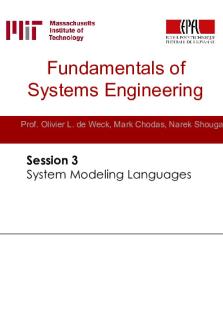Lecture 3 reading notes - Systemic/Family Therapy approaches PDF

| Title | Lecture 3 reading notes - Systemic/Family Therapy approaches |
|---|---|
| Course | Clinical Psychology |
| Institution | University of Sussex |
| Pages | 2 |
| File Size | 84.8 KB |
| File Type | |
| Total Downloads | 86 |
| Total Views | 144 |
Summary
Lecture 3 reading notes - Systemic/Family Therapy approaches...
Description
Lecture 3 Reading Working systemically with families: formulation, intervention and evaluation - Book - by Arlene Vetere; Rudi Dallos - 2003 Read Chapter 1 ONLY 'What is family therapy and systemic practice'
From the intra-psychic to the trans-personal Clinical practice The shift to relational thinking has givrn rise to two developments in clinical professional field: o A) practice as a qualified family therapist o B) and/or systemic practice while qualified in another mental health discipline Enduring ideas in systemic family therapy: a conceptual map of the evolution of ideas Psychology, including clinical psychology, has arguably been fundamentally concerned with the individual and intra-psychic states. In contrast, one of the most enduring ideas of Systemic Theory is that individual experience, including problems and pathology, is fundamentally interpersonal rather than individual. Systemic family therapy has progressed through three phases: o Phase 1: systems theory and functional analysis Types of therapy Structural. Strategic. Brief Therapy. Focus: Function of symptoms in the family. Core concepts Circular versus linear causality. Dysfunctional patterns and structures. Circularities (patterns of behaviour). Family structures. Power, inequalities and confusions. Homeostasis. Family rules. Communication. Key therapeutic approaches Therapeutic tasks. Altering patterns. Disrupting circularities. Reframing. Altering structures. Unbalancing. Enactment. o Phase 2: constructivism Types of therapy
Milan. Family Construct Psychology. Brief Therapy/Solution-focused therapy.
Focus
Patterns of beliefs in families. Levels of meanings. Communication. Observing systems. Hypothesizing. Core concepts Punctuation. Reality as subjective. Inter-locking beliefs. Auto-poiesis. Communication. Key therapeutic approaches Reframing. Re-storying. Co-construction of shared stories. Circular questioning. Positive connotation o Phase 3: social constructionism Types of therapy Feminist. Narrative. Post-Milan. Focus: Role of language in shaping experience and actions. Core concepts Discourses. Narratives. Conversation. Reflection. Power (socially constructed). Key therapeutic approaches Re-storying. Reflecting processes (teams). Externalizing problems. Interviewing the internalized other. Writing o...
Similar Free PDFs

Reality Therapy Lecture Notes
- 7 Pages

Lecture 3 choiceexperiment reading
- 10 Pages

Ch 3 reading notes
- 2 Pages

EC lecture 3 pre reading
- 1 Pages

Multimodal-Therapy - lecture
- 13 Pages

COMM 89 Lecture + Reading Notes
- 94 Pages

Lecture notes, lecture 3
- 5 Pages

Lecture notes, lecture 3
- 8 Pages

Notes#3 - Lecture 3 notes
- 49 Pages

Lecture notes, lecture 3
- 59 Pages

3 - Lecture notes 3
- 7 Pages
Popular Institutions
- Tinajero National High School - Annex
- Politeknik Caltex Riau
- Yokohama City University
- SGT University
- University of Al-Qadisiyah
- Divine Word College of Vigan
- Techniek College Rotterdam
- Universidade de Santiago
- Universiti Teknologi MARA Cawangan Johor Kampus Pasir Gudang
- Poltekkes Kemenkes Yogyakarta
- Baguio City National High School
- Colegio san marcos
- preparatoria uno
- Centro de Bachillerato Tecnológico Industrial y de Servicios No. 107
- Dalian Maritime University
- Quang Trung Secondary School
- Colegio Tecnológico en Informática
- Corporación Regional de Educación Superior
- Grupo CEDVA
- Dar Al Uloom University
- Centro de Estudios Preuniversitarios de la Universidad Nacional de Ingeniería
- 上智大学
- Aakash International School, Nuna Majara
- San Felipe Neri Catholic School
- Kang Chiao International School - New Taipei City
- Misamis Occidental National High School
- Institución Educativa Escuela Normal Juan Ladrilleros
- Kolehiyo ng Pantukan
- Batanes State College
- Instituto Continental
- Sekolah Menengah Kejuruan Kesehatan Kaltara (Tarakan)
- Colegio de La Inmaculada Concepcion - Cebu




